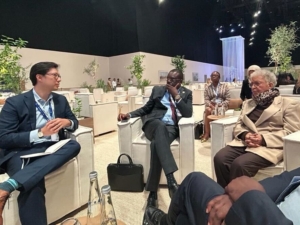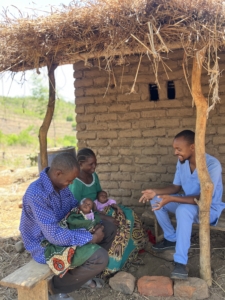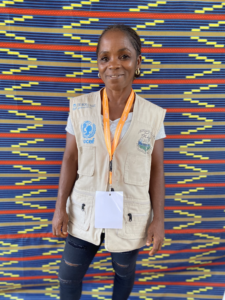By Nan Chen, Co-Executive Director, Africa Frontline First
Since 2007, when Last Mile Health began advocating for investment in professionalcommunity health workers, we’ve witnessed encouraging markers of progress. More stakeholders have joined the conversation, and more governments continue to develop policies that rely on a trained community health workforce to bring primary care to poor, rural, and remote areas. We’ve seen the WHO adopt the first-ever guidelines for paid community health workers, donors like the Global Fund and the President’s Malaria Initiative shift policy to paid community health workers, and 35+ countries commit to a professionalized community health workforce.
But at the community level, challenges remain. In many countries, community health workers are still unpaid volunteers in fragmented groups, disconnected from the health system. Even where community health policies exist, they’re often not implemented effectively. Why is this?
One key barrier is financing. To build and sustain strong community health systems, more funding is needed, and funding needs to be used more effectively. This is the driving force behind Africa Frontline First, an initiative launched in 2022 in a partnership between Last Mile Health, Financing Alliance for Health, and the Community Health Impact Coalition under the championship of H.E. Ellen Johnson Sirleaf, former President of Liberia.
Africa faces an annual community health funding gap of $4.4 billion. Beyond this gap, there are challenges relating to how money flows. It can become fragmented, with programs focusing on specific topics like HIV or malaria, rather than an integrated approach to delivering all primary care services via one community health workforce. And often, challenges that funders prioritize aren’t the challenges national leadership identifies as most urgent. Even when countries secure funding, they need tailored technical assistance to ensure it translates into impact.
Africa Frontline First wants to move from a world in which governments are the deal takers to the deal makers for their countries, setting the agenda for the community health workforce, its priorities, and how to allocate funding. We operationalize this by mobilizing financing, partnering with governments to ensure financing is effectively used, and building political will to advocate for professional community health workers. We aim to close the community health funding gap, which will allow countries to hire an additional 200,000 community health workers and reach 100 million people with essential care by 2030. Simply put, Africa Frontline First unlocks more money for community health—and accompanies governments to leverage it effectively.

Last Mile Health’s Nan Chen with Dr. Jean Kaseya and H.E. Ellen Johnson Sirleaf at Reaching the Last Mile Forum.
In partnership with the Global Fund, Skoll Foundation, and Johnson & Johnson, Africa Frontline First has unlocked $100m through the Africa Frontline First Catalytic Fund toward improving systems that support community health workers. Last Mile Health is also the lead service provider of BIRCH, a $7m targeted funding stream supporting 11 countries in Africa. In these countries, we are working alongside technical partners to unlock new funding and leverage complementary investments for national community health plans. We aim for these initiatives to lead to clear policy and sustainable financing.
With champions like Ellen Johnson Sirleaf and Dr. Jean Kaseya, Africa Frontline First and Africa CDC are cultivating collaboration and transparency among major donors. In December 2023, at Reaching the Last Mile Forum, 11 partners committed to strengthening community health programs through coordinated and collective investments, led by a $900m commitment from the Global Fund. Community health is becoming core to key organizations’ agendas—and we’re building partnerships that will let effective, honest collaboration drive impact.
For me, as someone whose career has focused on community health financing, these big-picture shifts are incredibly encouraging. But even more compelling is their impact for real people. I’ve had the chance this year to walk alongside community health workers and hear about their needs. One community health worker, Mary Wiah from Liberia, shared how she completes her regular training and provides patient visits and preventive care. She said, “If we get the drugs in stock, we can deliver them and save lives.” I asked her, “Can you talk to me about why there’s an ‘if’?” She shared the reality too many community health workers still face: there’s no guarantee the medicine she needs will be in stock. There’s no guarantee she’ll be paid on time. She doesn’t know if there will be internet so she can report patient data and request supplies. Financing is at the heart of all these issues. When we invest in community health systems, we change the reality for community health workers.
Together, we can break down the financing barrier to stronger community health systems.
This post was originally published as part of Last Mile Health’s July-September 2023 quarterly report. Read the full report here.






